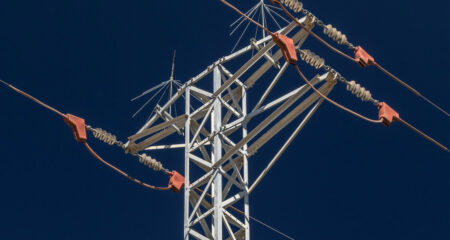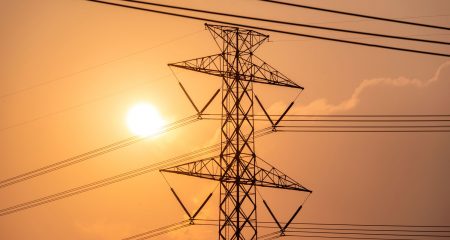 Eskom bondholders are watching the latest round of rescue talks from a distance. Yields suggest they’re confident their money is safe, whether or not the discussions result in a sustainable solution for the utility’s R480-billion debt pile.
Eskom bondholders are watching the latest round of rescue talks from a distance. Yields suggest they’re confident their money is safe, whether or not the discussions result in a sustainable solution for the utility’s R480-billion debt pile.
Eskom’s risk premium over South African sovereign debt narrowed to a 19-month low last week and remained near that level even amid global bond turmoil. Investors including T Rowe Price International, Insight Investment Management and Aberdeen Standard Investments said they haven’t been approached about the debt plan, but believed a solution could be reached.
Nedbank Group is involved in discussions to restructure the debt. One of the options is to transfer at least R100-billion of debt to a special-purpose vehicle that would be overseen by the Public Investment Corp, Africa’s biggest fund manager that supervises government pensions, according to people familiar with the discussions.
“There is slightly more credibility towards where they want to move in terms of debt and becoming a self-sustaining entity,” said Willem Visser, a London-based credit analyst at T Rowe Price, which holds Eskom bonds. “Things are moving in the right direction. The trajectory is correct in terms of our comfort level that at the end of all this we will get paid.”
Eskom, described by Goldman Sachs Group as the biggest threat to the South African economy, has become mired in debt as a result of overspending on projects. The utility can’t meet its costs and is subjecting the country to intermittent power outages as a result of inadequate maintenance at its ageing fleet of coal-fired power plants.
Explicit guarantee
About two-thirds of the company’s bonds are backed by an explicit government guarantee that was designed also to improve the position of holders of the non-guaranteed securities. Under the terms of the agreement, the government is obliged to step in when Eskom anticipates payment pressure, to prevent a default. It also rules out cross-defaults.
That leaves holders of the non-guaranteed debt in a secure position, according to GAM Holdings. It shows in the yield spreads: The premium investors demand to hold the company’s 2028 dollar bonds without a government guarantee rather than those with state backing is at its lowest in two years.
“The debt issue is clearly a problem, but I find it hard to believe Eurobond holders would take the hit given the guarantee structure,” said Richard Briggs, a London-based money manager at GAM Holdings, which owns Eskom bonds.
 Eskom has previously said it can only service about R200-billion of debt. The company repaid a US$1.75-billion Eurobond that matured in January, using capital injected by the government.
Eskom has previously said it can only service about R200-billion of debt. The company repaid a US$1.75-billion Eurobond that matured in January, using capital injected by the government.
That’s a sign of good faith after CEO Andre de Ruyter assured investors last year that “a haircut was out of the equation”, said Rodica Glavan, head of emerging-market corporate debt at Insight Investment Management in London, which holds Eskom bonds.
The rescue plan foresees splitting Eskom in to three independent units: transmission, generation and distribution. After transferring some debt to a special-purpose vehicle, the rest will be divided between the units, Bloomberg News reported. That ultimately makes little difference to bondholders, said Max Wolman, an investment director at Aberdeen Standard Investments in London, which owns Eskom debt.
“A large chunk of Eskom debt is government-guaranteed anyway and I am not sure this proposal will change that much,” Wolman said. “It might just transfer a bit of Eskom’s debt, but the government will still be liable for it.”
That risks substituting a sovereign debt crisis for an Eskom debt crisis, with the utility’s bondholders getting paid but the government’s creditors left footing the bill. South Africa is already facing mounting fiscal challenges, with public debt seen reaching 100% of GDP in three years according to Moody’s Investors Service, and the economy not generating enough tax to pay for it. Eskom “poses significant contingent-liability risks to the government”, Lucie Villa, a senior vice-president at Moody’s, warned in a report on Friday.
Proposals
No final decisions have been made on the rescue plan, and proposals will be presented to national treasury in the coming weeks, said the people. Public enterprises minister Pravin Gordhan said on 12 February the “broad direction” of the rescue plan will be known in three to five months.
“Until the restructuring is done, we assume that Eskom will have the full support of the South African government, with regards to its financial difficulties as well as the operational challenges,” said Leon Ernst, a Zurich-based credit analyst at Aquila Asset Management, which owns Eskom bonds. — Reported by Colleen Goko and Selcuk Gokoluk, (c) 2021 Bloomberg LP




